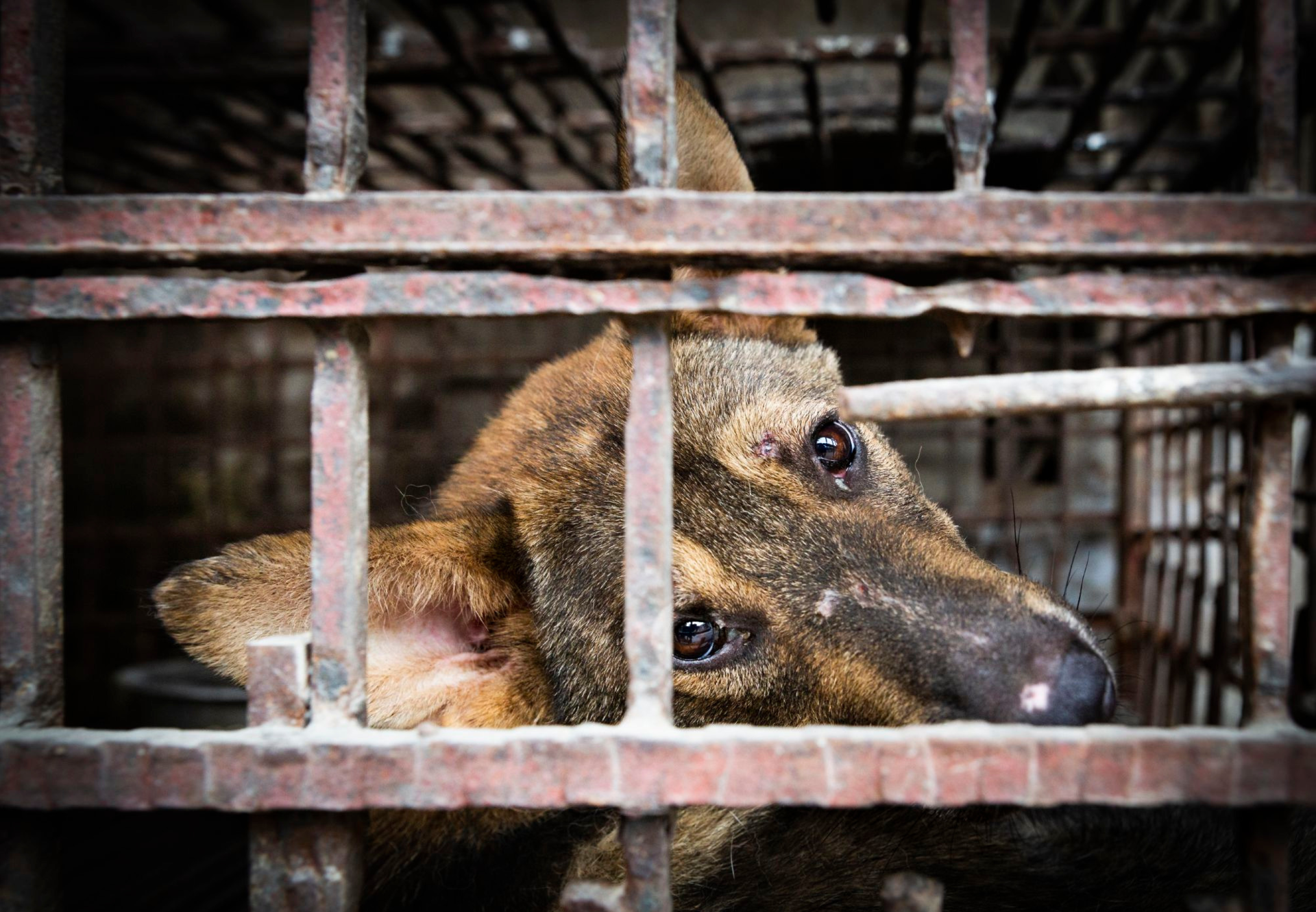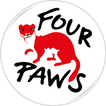
China bans the selling of dog and cat meat
FOUR PAWS calls on the Governments of Cambodia, Indonesia and Vietnam to follow China’s example
May 29, 2020 – A historic moment for animal welfare: China's publication of a new National Catalogue of Livestock and Poultry Genetic Resources excludes dogs and cats, meaning that dog meat is not allowed to be sold in China anymore. Cats were never part of the livestock list and therefore also not allowed to be sold for food.
FOUR PAWS, the global animal welfare organization, welcomes this landmark decision and calls on the Governments of Cambodia, Indonesia and Vietnam to follow China’s example. FOUR PAWS warns that the dog and cat meat trade is not only the biggest companion animal welfare issue in Southeast Asia but also poses a major risk to both public and global health. The unhygienic conditions under which the animals are captured, transported, held and slaughtered – often in live animal markets – are the perfect breeding ground for new zoonotic viruses.
In Vietnam, around five million dogs and one million cats are stolen and brutally slaughtered for their meat every year. The animals are frequently transported across borders, including to and from China. With an estimated four million pets and stray animals killed each year, the situation in Cambodia and Indonesia is similarly devastating.
Slaughterhouses and live animal markets: ticking time bombs
The injured and traumatized dogs and cats, including stolen pets, are crammed together in small cages and transported without food and water for hours or even days to unsanitary slaughterhouses and live animal markets across Southeast Asia. The conditions the animals endure lead to them having weakened immune systems, which makes them contract and transmit diseases.
The markets and slaughterhouses themselves create the perfect breeding ground for deadly zoonotic viruses, such as the novel coronavirus. “The rampant dog and cat meat trade and the live animal markets throughout Southeast Asia are ticking time bombs. If governments don't stop this brutal trade now and shut down the cruel markets and slaughterhouses, the next global pandemic could originate from Vietnam, Cambodia or Indonesia,” says Dr Polak.
FOUR PAWS’ fight against the dog and cat meat trade
In order to sustainably end the brutal dog and cat meat trade in Southeast Asia, FOUR PAWS has launched a campaign on an international and national level. A major building block of this campaign is the network of local animal welfare organizations and communities throughout the region. Through this network, FOUR PAWS helps relieve the pressures of stray animal populations, a major source of dogs and cats for the trade, with humane and sustainable stray animal care programs. FOUR PAWS is also part of the animal welfare coalitions DMFI (Dog Meat Free Indonesia) and ACPA (Asia Canine Protection Alliance), which lobby against the trade in Southeast Asia, as well as the Asia for Animals Coalition, which works to improve the welfare of animals across Asia.
In addition, FOUR PAWS has launched a petition against the dog and cat meat trade, which has already been signed by over 750,000 supporters worldwide since it launched late last year:
https://help.four-paws.org/en/end-dog-and-cat-meat-trade-southeast-asia
FOUR PAWS is the global animal welfare organization for animals under direct human influence, which reveals suffering, rescues animals in need, and protects them. Founded in 1988 in Vienna by Heli Dungler and friends, the organization advocates for a world where humans treat animals with respect, empathy, and understanding. FOUR PAWS’ sustainable campaigns and projects focus on companion animals including stray dogs and cats, farm animals and wild animals – such as bears, big cats, and orangutans – kept in inappropriate conditions as well as in disaster and conflict zones. With offices in Australia, Austria, Belgium, Bulgaria, France, Germany, Kosovo, the Netherlands, Switzerland, South Africa, Thailand, Ukraine, the UK, the USA and Vietnam, as well as sanctuaries for rescued animals in eleven countries, FOUR PAWS provides rapid help and long-term solutions. www.fourpawsusa.org
